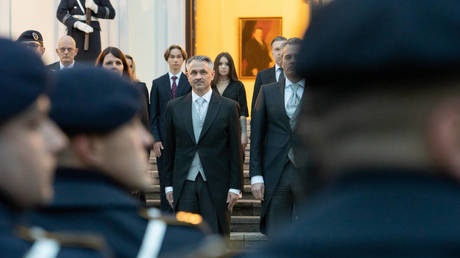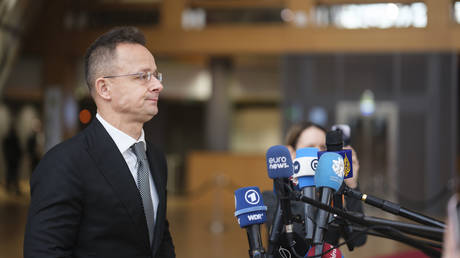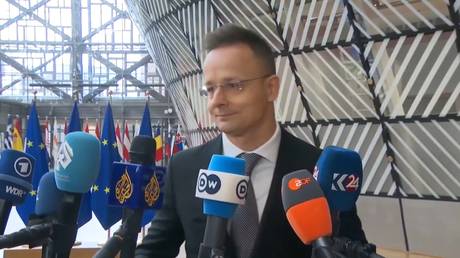
The Ukraine conflict should not stand in the way of resolving the issue, Warsaw’s ambassador in Berlin has said
Poland has no plans to put the matter of Germany’s WWII reparations to rest, Dariusz Pawlos, the nation’s new envoy in Berlin, stated on Saturday. Earlier this autumn, Warsaw presented its neighbor with a restitution bill for a whopping €1.3 trillion ($1.37 trillion).
Speaking to Die Welt newspaper, Pawlos said that while the German government “considers the issue to be legally closed,” Warsaw “does not think so.” He noted that during WWII Poland lost a third of its population to Nazi atrocities and that after the war the two countries never signed a treaty that would settle all reparations claims.
The ambassador recognized that the reparations issue is a “painful” one for all parties involved, but noted that the ongoing Ukraine conflict should not stand in the way of solving it, given that “there is no good time for such a demand.”
“I think it is important, especially in times of war, to remember that war crimes do not expire,” Pawlos stressed.
He also pushed back on speculation that Poland’s demands are only a tool to be used during the national electoral campaign. “It would be imprudent to think that the problem would simply disappear after the 2023 elections,” he said, adding that Warsaw’s claims rest on massive public support and are also endorsed by Civic Platform, the largest opposition party.
Compensation for the damage caused to Poland by Nazi Germany between 1939 and 1945 remains a thorny issue between the two EU nations. Berlin insists that the matter was settled when Warsaw waived its right to restitutions in 1953 under a deal with East Germany, and that the issue was definitively settled under a 1990 treaty on German reunification. In the 1990s, Berlin made one-time payments to victims of forced labor and former inmates of Nazi concentration camps.
Poland, meanwhile, insists that the 1953 waiver was signed under pressure from Moscow, and that it was barred from participating in the 1990 negotiations.
In late October, Warsaw released an official reparations payment demand to the tune of €1.3 trillion ($1.37 trillion). In addition, Poland also said it wanted Germany to return cultural items looted by the Nazis and still kept in the country while also giving back “assets and liabilities of Polish state banks and credit institutions” confiscated by the Third Reich during WWII.




